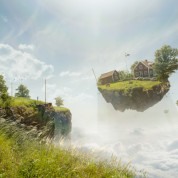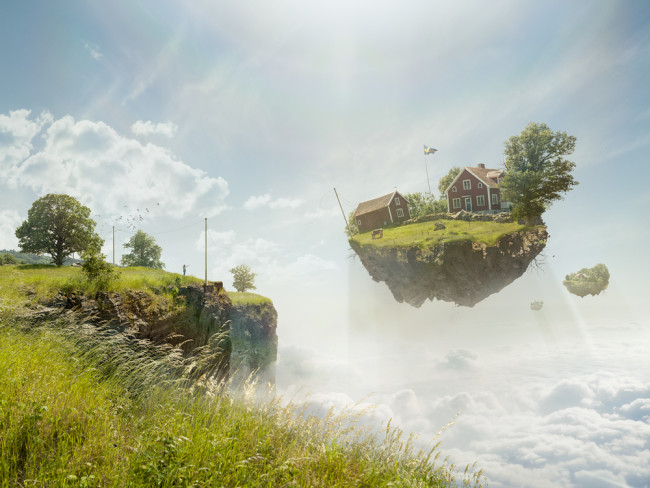
The trouble with normal
is it always gets worse
-Bruce Cockburn
Our need for belonging is powerful, deep, and enduring. It bubbles up from some primordial place inside us, asking for safety, connection and warmth. If we are not awake and present to the way this drive to belong plays itself out in our lives, we’ll get tied up in knots. We’ll stay inside narrow fields and courtyards, instead of wandering free and wild. We we will start to believe that being normal, or appearing normal, is the best way to belong. And eventually we will make that normal into a god who demands our obedience.
We do need to belong, to connect, to become part of a network of love, support and understanding. But if allow that need to dominate our deeper intelligence, we will disconnect from something something precious and authentic in ourselves. We will start to go along with all kinds of things that are neither nourishing nor inspiring. We will forget our power to question, to choose something radically different.
I see this quite often in the field of our relating. Our current post-modern culture is phobic about feeling. We have been taught that feelings are dangerous and must be hidden, suppressed and controlled. It’s not normal to express strong feelings in our culture—that’s reserved for special occasions like weddings, funerals and sports events. This tendency is so widespread that even people who consider themselves ‘feeling people’ are not actually in touch with the full range of their feelings at all. How much of this normal can we continue to go along with, before we lose contact with our authentic passions, our vitality, our deep capacity to care?
There are many different kinds of ‘normals’ like this in our culture. A lot of them operate outside our full conscious awareness, as agreements we are making with each other about how to be, how to act, how to see the world. This is one of my favourites: “It isn’t normal to know what we want.”
The psychologist Abraham Maslow said this. “To know what we want is a rare and difficult psychological achievement.” Isn’t this amazing? How could it possibly be so difficult to know what we want?
I am very familiar with this difficulty through my work as a spiritual mentor and coach. Over the years, I’ve had people get angry at me when I ask them what they want. Not just irritated, but really angry. Sometimes they get sad. And often, they become frightened. I believe that many of the spiritual teachings that help people transcend desire are not helping them awaken at all. They are simply helping people avoid the challenging developmental task of discovering what they truly want, what they long for and desire.
Desire is a beautiful thing. It is full of fire, potency, and life. It is generative in nature. Desire is an essential part of being fully human and alive; it is an awakening, creative force. It can also be a destructive force, if it comes from a young or wounded place inside us. So we need to grow into the fullness and depth of our true desires, and not give up on them. Or on ourselves. We need to help each other to slow down and listen to our hearts, our bodies and our souls, so we can hear the voice of our desire, our wanting, which may have been stifled for a long time.
To re-awaken buried longing can be a painful thing. I have experienced this myself, more than once. But there is something sweet in that pain, like a thawing that happens in the spring, a loosening of the soil around the heart, so that new life can grow.
If we are true to what we really want, if we learn to honour and respect our own deep desires, we may enter at some point, the land where nothing is wanted. This will happen organically, just like an apple falling from a tree, not because we are afraid to feel the depths of what still calls us.
It’s never too late to turn towards what we really want. Our true desires live on and on. They are larger than we are, really, and they call us back to something that existed long before we did.
Old men ought to be explorers
Here and there does not matter
We must be still and still moving
Into another intensity
For a further union, a deeper communion
Through the dark cold and empty desolation,
The wave cry, the wind cry, the vast waters
Of the petrel and the porpoise. In my end is my beginning.
—TS Elliot
with love,
Shayla
photo credit: http://www.erikjohanssonphoto.
6 Comments
Join the conversation and post a comment.



Letting the seed of this letter germinate in my soul.
The Fallow country of my passion.
Ahhh bless you Shayla, this helps me a lot. I would like to say more … but gratitude is all that is emerging. Thank you
another wonderful piece for my forever file . Your words touch my heart every single time. Once again I am humbled by your wisdom and love for all …………Mary Jane
Beautiful….I particularly felt the power of this piece for me in the urge for us to discern the difference between desires that are born of woundedness within us and desires that are born of a truth within us. A passion that is true is not about safety but about finding our authentic place…the piece of the collective puzzle of existence each of us are. This is ‘natural belonging,’ always there. Thank you so much for sharing the simplicity and profound clarity of your words. I appreciate you so much!
Wonderful work, Shayla. As a spiritual mentor said to me last week: “Normal” is vastly over-rated.
WOW. Shayla I find this post DEEPLY inspiring and salute you for how eloquently you express this. I am fascinated by these themes, of longing, desire, belonging and the way they interact with spiritual practice. I love your sentence here: “If we are true to what we really want, if we learn to honour and respect our own deep desires, we may enter at some point, the land where nothing is wanted”. Beautifully put!